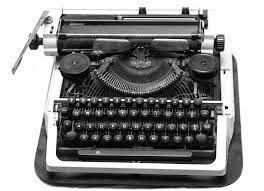Lies They Tell Writers, Part 14: Writing is Easy.

There’s an old saw that says “writing must be fun—if it was work, you’d get paid for it.” As true as that may be—and writing is fun for most of the folks I know who do it—writing well is, at the same time, work. But there are people I know who “write” but are not willing to work at it, or even acknowledge that work is required.For example(s):Once, while judging a poetry competition, another of the judges and I were discussing the relative merits of some of the submissions. This judge did not much take into account the use of literary technique, seem to appreciate its value, or want to reward the obvious effort of some of the poets to make their poems poetic. Subject matter and story were the only measures—“poetry” didn’t matter. To paraphrase, “I’m a big believer that this stuff comes from God, and all we do is write it down.”Well.While inspiration is important to writers, it is the Alpha, not the Omega. Once inspired, it is up to the writer to turn that inspiration into poetry (or prose, for that matter). Otherwise, we lay the blame for mediocre or downright bad writing where it does not belong—in the lap of the Almighty—and relieve the writer of the responsibility. It is our job as writers to take whatever inspiration we receive and mold and shape and polish it into something worthy of the muse.One more illustration:From time to time I am approached by writers and poets for advice. (Why they would stoop to my level is beyond my ken.) One poet wanted suggestions on that nasty little thing called meter. In my experience, there are a lot more poets who lay claim to using meter than there are poets who understand and use it properly. After a few go-rounds of discussion, that poet threw in the towel. "I really don’t want to get too technical if I can help it,” came the explanation, “because I think it might take the magic out of the process. Some of what I feel is my best poetry just seems to flow out almost complete.”Well.Like it or not, using meter properly in poetry is largely a technical process. It takes work and frustration and rewriting and revising and struggle and exertion to get it right. And, when well done, it will add to, not subtract from, the “magic.” Whether it is poetry or prose, fiction or nonfiction, writing well is work. As English novelist Anthony Powell said, “Writing is a combination of intangible creative fantasy and appallingly hard work.” Part of the work is understanding the gritty little details of why you’re writing what you’re writing the way you’re writing it. “Writing is very hard work and knowing what you’re doing the whole time,” historian Shelby Foote said. I agree. William Styron said, “Let’s face it, writing is hell.” He’s right, too—even though writing sometimes seems heavenly. Finally, Thomas Mann made a good point when he said, “A writer is someone for whom writing is more difficult than it is for other people.” That may be the difference, right there. Anyone can put words on paper, and many have a knack for putting them down well. But writers—real writers—are the ones who invite, and endure, and even enjoy, the difficulty involved in writing right.
Published on May 08, 2015 06:15
No comments have been added yet.



